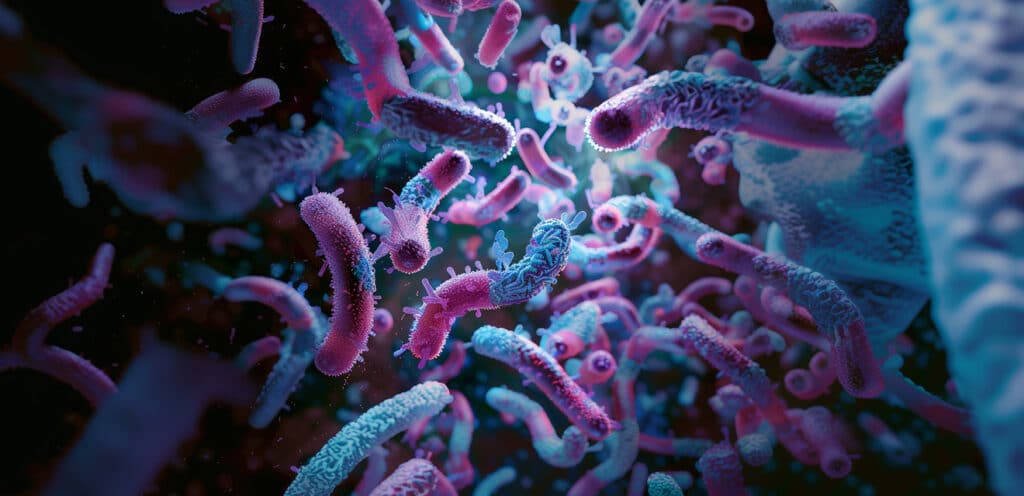Ever wake up feeling like it’s just not your day? Joy seems distant, motivation is hard to come by, and even simple tasks become daunting. This isn’t just a bad day—it could be a result of low dopamine levels.
Dopamine is a neurotransmitter, it’s what fuels our drive, shapes our moods, and colors our experiences. When it’s lacking, so is our ability to feel that spark of excitement or tackle life with vigor.
Today, we’ll explore how lifestyle changes can naturally boost dopamine, alongside supplements to brighten your mood, boost your motivation, and bring back that zest for life.
What’s Dopamine?
Dopamine is a neurotransmitter, or a chemical messenger that plays a crucial role in the brain’s reward and pleasure centers. It’s responsible for regulating mood, motivation, and movement. When dopamine levels are balanced, we feel rewarded and motivated to pursue activities that bring us pleasure and satisfaction.
Neurons release dopamine when a person completes a rewarding behavior, reinforcing the likelihood of repeating that behavior. Additionally, dopamine release occurs before an action, motivating individuals to initiate tasks and pursue goals.
Symptoms of Low Dopamine Levels
Low dopamine levels can lead to several symptoms, impacting both mental and physical health:
Lack of Motivation: Difficulty starting or completing tasks, feeling unmotivated or apathetic.
Depression: Persistent feelings of sadness, hopelessness, or emptiness.
Fatigue: Persistent tiredness, low energy levels, and reduced enthusiasm for activities.
Insomnia: Difficulty falling asleep or staying asleep, leading to poor quality sleep and daytime drowsiness.
Low Sex Drive: Decreased libido or interest in sexual activities.
Constipation: Difficulty passing stools and irregular bowel movements.
Memory Loss: Difficulty remembering information or experiencing cognitive fog.
Attention Difficulties: Trouble focusing or maintaining attention on tasks.
Weight Gain: Increased appetite and weight gain, often due to changes in eating habits and reduced physical activity.
Anxiety: Feelings of nervousness, restlessness, or worry that can affect daily functioning.
Lifestyle Practices to Support Dopamine Production

Maintain a Balanced Diet
Consume a diet rich in protein, antioxidants (like those found in fruits and vegetables), and omega-3 fatty acids (found in fish, flaxseeds, and walnuts). These nutrients provide the building blocks for dopamine production and support overall brain health.
Engage in Regular Physical Exercise
Regular aerobic exercise, such as jogging, swimming, or dancing, promotes dopamine release and enhances brain function. Exercise also helps reduce stress and improves mood, contributing to a healthier dopamine system.
Practice Stress Management Techniques
Incorporate stress management practices into your daily routine, such as yoga, meditation, or deep breathing exercises. These techniques help reduce cortisol levels (the stress hormone) and support dopamine balance.
Prioritize Adequate Sleep
Aim for 7-9 hours of quality sleep each night to support optimal brain function and neurotransmitter balance. Sleep is essential for memory consolidation, cognitive function, and overall mental health, including dopamine regulation.
Best Supplements to Increase Dopamine

Probiotics
Probiotics are beneficial bacteria that support gut health and have been linked to improvements in mental well-being, including mood regulation and neurotransmitter balance.
Probiotics and Dopamine
Several rat studies have demonstrated that probiotic supplements can increase dopamine production and improve mood and anxiety levels. These studies indicate that probiotics may influence neurotransmitter pathways in the brain, contributing to enhanced emotional resilience and stress management
In human studies, individuals with conditions such as irritable bowel syndrome (IBS) who received probiotic supplements experienced notable benefits in mental health. Specifically, one study showed that participants with IBS who took probiotics reported a reduction in depressive symptoms compared to those who received a placebo
Choosing Probiotics
When selecting probiotics, consider products that contain strains known for their beneficial effects on gut health and mental wellness. Look for diverse strains such as Lactobacillus and Bifidobacterium species, and ensure they are stored and handled properly to maintain potency.
Vitamin D
Vitamin D is essential for dopamine synthesis in the brain, playing a critical role in regulating neurotransmitter function and influencing mood and cognitive processes.
Role of Vitamin D in Dopamine Synthesis
Vitamin D receptors are found throughout the brain, including areas involved in dopamine production and regulation. Adequate vitamin D levels support the enzymes and pathways necessary for dopamine synthesis, ensuring proper neurotransmitter balance.
Recommended Daily Intake of Vitamin D to Increase Dopamine
The recommended daily intake of vitamin D varies by age and health status. For most adults, including those aiming to support dopamine production, experts recommend:
- For general health: 600-800 IU (International Units) per day.
- To address deficiency: Higher doses may be necessary under medical supervision, often ranging from 1,000 IU to 4,000 IU per day or more, depending on individual needs and blood test results.
Ginkgo Biloba
Ginkgo Biloba, derived from one of the most ancient tree species in the world, has a rich history in traditional medicine for various health and wellness applications.
Ginkgo Biloba and Dopamine Production
Animal studies have demonstrated that extracts from the leaves of the ginkgo tree possess neuroprotective properties. These extracts protect dopaminergic neurons in the brain, which are responsible for producing dopamine. By safeguarding these neurons, Ginkgo Biloba may effectively boost dopamine levels in the brain, contributing to improved neurotransmitter balance and cognitive function.
Dosage
- Standard Dosage: Typical doses for Ginkgo Biloba range from 120 mg to 240 mg per day, divided into two or three doses.
- Extract Strength: Look for standardized extracts containing 24% flavone glycosides and 6% terpene lactones, which are the active compounds responsible for its beneficial effects.
Also Read: The Health Benefits of Ginkgo Biloba
Mucuna Pruriens (Velvet Bean)
Mucuna Pruriens, also known as Velvet Bean, is a tropical legume native to Africa and Asia. It has gained attention for its high content of L-Dopa, a precursor to dopamine.
Boosting Dopamine Levels
Mucuna Pruriens contains a significant amount of L-Dopa, which is readily converted into dopamine in the brain. This direct supply of L-Dopa bypasses some of the regulatory processes in dopamine synthesis, potentially leading to more immediate and sustained increases in dopamine levels compared to other supplements.
Research has demonstrated that Mucuna Pruriens can effectively increase dopamine levels in humans, particularly beneficial for individuals with Parkinson’s disease. The L-Dopa content in Mucuna Pruriens provides a natural source of dopamine precursor that can alleviate symptoms and improve motor function in Parkinson’s patients.
Dosage
- Standard Dosage: Typical doses for Mucuna Pruriens vary depending on the concentration of L-Dopa in the supplement. It is essential to follow manufacturer recommendations and consult with a healthcare provider for personalized dosage guidance.
Potential Side Effects

While supplements such as Vitamin D, Ginkgo Biloba, Mucuna Pruriens, and Probiotics offer various health benefits, it’s essential to be aware of potential side effects and take precautions for safe usage.
1. Probiotics:
Probiotics are generally safe for most people. However, they may cause mild digestive discomfort, such as bloating or gas, particularly when first starting supplementation.
2. Vitamin D:
Vitamin D is generally well-tolerated when taken within recommended doses. However, excessive intake can lead to vitamin D toxicity, causing symptoms such as nausea, vomiting, and weakness.
3. Ginkgo Biloba:
Common side effects of Ginkgo Biloba may include headache, dizziness, and digestive upset. In some cases, it may increase the risk of bleeding, especially when combined with blood-thinning medications.
4. Mucuna Pruriens (Velvet Bean):
Mucuna Pruriens may cause digestive upset, including nausea and bloating, especially when taken in high doses. It may also interact with medications used for Parkinson’s disease or psychiatric conditions.
In Summary
In conclusion, enhancing mental well-being through natural supplements is a proactive approach to improving daily life and overall health. Whether supporting dopamine production with supplements like Vitamin D, Ginkgo Biloba, Mucuna Pruriens, or Probiotics, these options offer valuable benefits when integrated into a balanced lifestyle.
Remember to prioritize consultation with healthcare professionals and listen to your body’s signals for optimal results. Ready to increase dopamine with some supplements? Visit Harfang Supplements, one of the best online supplement stores in Canada, offering a diverse range of high-quality products. Explore their offerings today to buy supplements online and experience the difference in quality.


